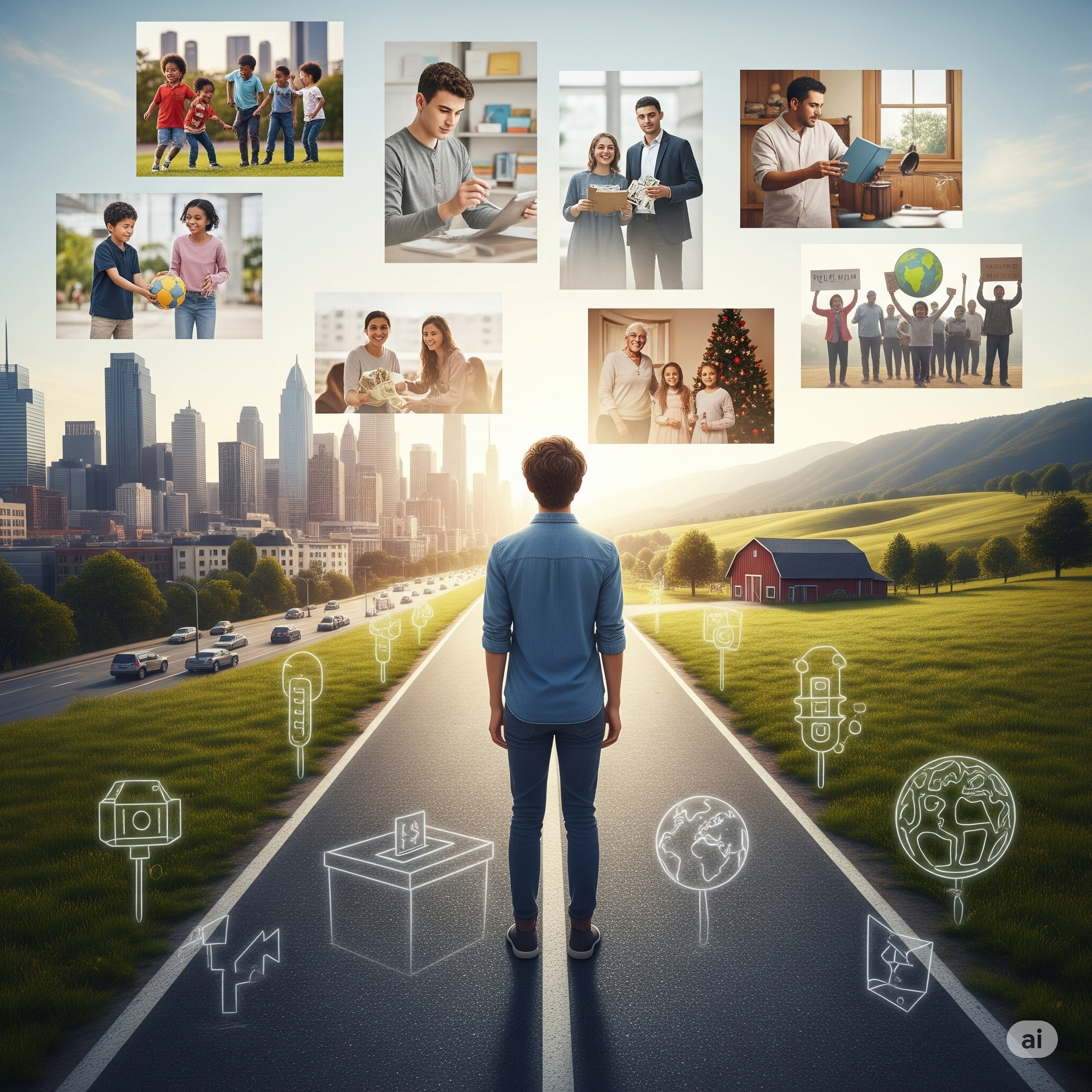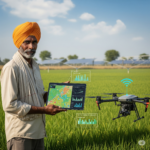
The Role of Personal Experience in Shaping Political Beliefs How lived experiences influence political ideologies and engagement.
- admin
- August 7, 2025
- Capital Journal, India, Psychology
- 0 Comments
Introduction
Political beliefs are not formed in a vacuum. They are a tapestry woven from personal experiences, cultural background, education, and societal interactions. For young individuals, these beliefs often emerge as they navigate challenges, relationships, and exposure to diverse perspectives. This article delves into how personal experiences shape political beliefs and how these beliefs, in turn, influence civic engagement and societal change.
The Foundations of Political Beliefs
1. Family and Early Socialization
Our earliest encounters with politics often stem from familial influences. Conversations at the dinner table, parental attitudes, and community norms subtly introduce political ideologies.
- Example:
- A child raised in a family that values social justice may grow up supporting policies aimed at reducing inequality.
- Conversely, a family emphasizing entrepreneurial success may instill beliefs in free-market economics.
2. Education and Academic Exposure
Schools and universities serve as key environments where young minds are exposed to political systems, historical contexts, and civic responsibilities.
- Experiential Learning:
- Participating in student government or debating clubs fosters an understanding of governance, encouraging critical thinking about political ideologies.
(Source: National Curriculum Framework)
Personal Experiences That Shape Political Beliefs
1. Socioeconomic Background
Economic realities often play a pivotal role in shaping political perspectives.
- Example:
- Someone from a marginalized community may advocate for policies addressing poverty and inclusion, while individuals from affluent backgrounds may prioritize tax reforms or entrepreneurial incentives.
2. Encounters with Inequality
Experiencing or witnessing inequality—whether based on caste, gender, or economic status—can be a transformative moment that aligns political beliefs with justice and equity.
- Example:
- The rise of youth activism during movements like #DalitLivesMatter reflects how personal experiences with caste-based discrimination translate into political action.
(Source: UNESCO India)
3. Exposure to Crisis Situations
Economic downturns, climate disasters, or public health crises often redefine political priorities.
- Example:
- The COVID-19 pandemic reshaped many young people’s beliefs about healthcare systems and the role of government in crisis management.
(Source: Ministry of Health and Family Welfare)
The Role of Technology in Shaping Experiences
1. Access to Global Narratives
The digital age allows young people to connect with diverse perspectives, reshaping political beliefs through exposure to international movements and ideas.
- Example:
- Global movements like Fridays for Future have inspired Indian youth to advocate for stronger environmental policies, highlighting the influence of shared digital experiences.
2. Social Media Echo Chambers
While technology provides access to diverse ideas, it can also create echo chambers that reinforce existing beliefs without challenging them.
- Impact:
- This can lead to polarization, where individuals align with extreme ideologies based on limited exposure to alternative viewpoints.
How Personal Experiences Influence Political Engagement
1. Advocacy and Activism
Personal struggles often motivate individuals to advocate for policy changes or join movements aligned with their experiences.
- Example:
- Survivors of gender-based violence are often at the forefront of campaigns for stronger legal protections.
2. Policy Prioritization
Life experiences guide individuals to prioritize policies that directly impact their lives, such as education reforms, healthcare, or employment guarantees.
3. Empathy-Driven Leadership
Leaders who have personally faced societal challenges are more likely to advocate for inclusive and equitable policies.
- Example:
- Political figures like Dr. B.R. Ambedkar, who experienced caste-based discrimination, spearheaded reforms that reshaped India’s social fabric.
(Source: Constitution of India Archives)
Challenges of Experience-Based Beliefs
1. Subjectivity and Bias
Personal experiences can sometimes lead to biased or one-dimensional views, limiting the ability to understand broader societal needs.
2. Resistance to Change
Deeply ingrained beliefs formed through personal experiences may hinder open-mindedness or acceptance of alternative ideologies.
Fostering a Balanced Perspective
1. Exposure to Diverse Experiences
Encouraging young people to engage with individuals from different backgrounds fosters empathy and broadens political understanding.
2. Education in Critical Thinking
Incorporating courses on logic, ethics, and civic responsibilities can help individuals evaluate their experiences critically.
3. Dialogue Across Differences
Platforms for constructive dialogue enable individuals to challenge their own beliefs and engage with differing perspectives.
Conclusion
Personal experiences are powerful drivers of political beliefs, shaping how individuals engage with governance and society. While these beliefs can lead to passionate advocacy and meaningful change, they must be balanced with critical thinking and exposure to diverse viewpoints. By understanding the role of personal experiences in politics, we can foster a more inclusive, empathetic, and engaged society—one where every voice, shaped by its unique journey, contributes to the collective good.

